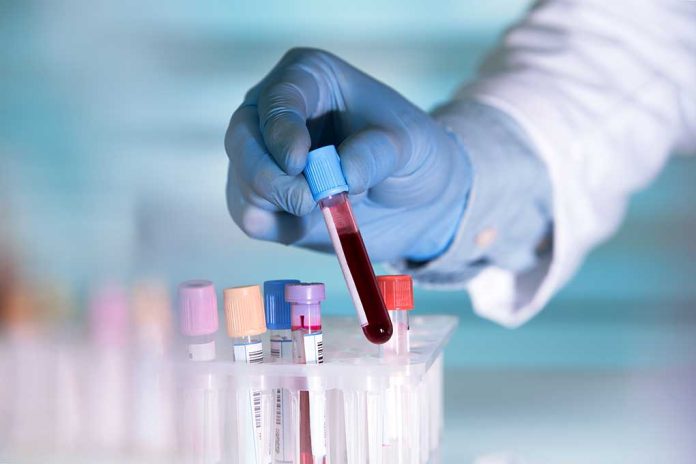
The World Health Organization has declared an ultra-deadly strain of monkeypox a global health emergency, sparking urgent calls for a worldwide response to control its spread.
At a Glance
- WHO declared the mpox outbreak in the DRC and other African countries a Public Health Emergency of International Concern.
- This is the second PHEIC determination for mpox in two years.
- The new clade of mpox is spreading rapidly in eastern DRC and neighboring countries.
- Over 15,600 cases and 537 deaths have been reported in the DRC this year.
- WHO is coordinating international efforts to ensure equitable access to vaccines and treatments.
WHO’s Declaration and Immediate Actions
The World Health Organization has officially declared the new ultra-deadly strain of monkeypox, clade 1b, a global health emergency. The designation underscores the urgent need for a coordinated international response to mitigate its spread. WHO Director-General Dr. Tedros Adhanom Ghebreyesus announced, “The emergence of a new clade of mpox, its rapid spread in eastern DRC, and the reporting of cases in several neighboring countries are very worrying.” WHO is focusing on mobilizing resources, enhancing surveillance systems, and implementing robust public health measures.
This is the second instance in two years that WHO has designated a monkeypox outbreak as a Public Health Emergency of International Concern (PHEIC). The first PHEIC determination last year helped accelerate research, funding, and international cooperation to manage the disease. However, this new strain, spreading predominantly through sexual networks, poses a greater threat given its deadly nature. Several countries including Burundi, Kenya, Rwanda, and Uganda have reported cases, necessitating a coordinated global effort.
Today, the Emergency Committee on #mpox met and advised me that in its view, the situation constitutes a public health emergency of international concern. I have accepted that advice.@WHO is on the ground, working with the affected countries, and others at risk, through our…
— Tedros Adhanom Ghebreyesus (@DrTedros) August 14, 2024
Spread and Impact in the DRC and Neighboring Countries
Monkeypox, caused by an Orthopoxvirus, was first detected in humans in 1970 in the DRC. Despite its historical presence, the current outbreak reflects a worrying surge in cases and fatalities. The DRC alone has reported over 15,600 cases and 537 deaths this year, a substantial increase from previous years. “Significant efforts are already underway in close collaboration with communities and governments,” noted Dr. Matshidiso Moeti, WHO Regional Director for Africa, emphasizing the need for further action.
The new virus strain, clade 1b, has been detected not only in the DRC but also in neighboring countries. This spread is attributed primarily to sexual transmission. Symptoms of mpox include a rash, fever, headache, muscle aches, back pain, low energy, and swollen lymph nodes. The Centers for Disease Control and Prevention (CDC) has advised healthcare professionals to remain vigilant for these symptoms in individuals traveling from the affected regions.
"In July last year, I declared a public health emergency of international concern over the multi-country outbreak of #mpox as the virus spread rapidly across the world"-@DrTedros https://t.co/Pl1iEznrtG
— World Health Organization (WHO) (@WHO) May 11, 2023
Vaccination and Treatment Strategies
Currently, WHO recommends two vaccines for mpox, which are approved by national regulatory authorities and WHO. However, these vaccines are not generally available in the DRC. The U.S. is stepping up to support by donating 50,000 doses. Vaccination is recommended within four days of contact or up to 14 days if asymptomatic. Additionally, WHO advises healthcare workers and men who have sex with men to get vaccinated even without known exposure to reduce the risk of transmission.
“The current upsurge of mpox in parts of Africa, along with the spread of a new sexually transmissible strain of the monkeypox virus, is an emergency for the entire globe. It is time to act decisively to prevent history from repeating itself,” stated Professor Dimie Ogoina, Committee Chair. These sentiments reflect the gravity of the situation and the necessity for imminent, coordinated interventions to safeguard public health.
Sources
- WHO declares mpox outbreak a global health emergency
- WHO Director-General declares mpox outbreak a public health emergency of international concern
- WHO declares mpox a global public health emergency for second time in two years
- World Health Organization declares ultra-deadly monkeypox strain a public health emergency of international concern
- WHO declares mpox outbreak a global health emergency
- WHO declares mpox a global public health emergency for second time in two years
- WHO Declares Mpox Outbreak A Global Health Emergency
- W.H.O. Declares Global Emergency Over New Mpox Outbreak
- WHO declares mpox virus a public health emergency of international concern
- WHO Declares Mpox A Public Health Emergency—Here’s What To Know













